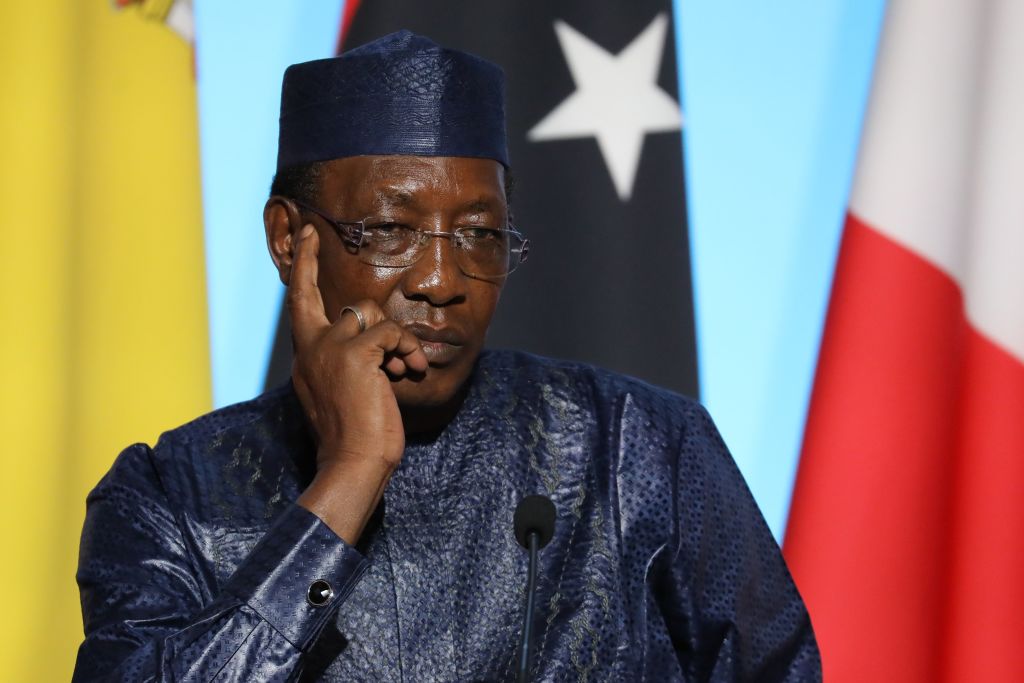Nobody seems to know why Trump added Chad to his travel ban


A free daily email with the biggest news stories of the day – and the best features from TheWeek.com
You are now subscribed
Your newsletter sign-up was successful
When President Trump issued a new travel ban on Sunday, he dropped Sudan from his old ban and added three new countries: Venezuela, North Korea, and Chad. Of those three, only Chad has a (barely) Muslim majority, and all three are odd picks. The ban mostly targets government officials in Venezuela, and North Korea doesn't let its citizens leave — making it hard to argue that either ban makes America safer from terrorists, Trump's rationale. And Africa experts are baffled as to why Trump included Chad, a Central African nation with a close military partnership with the U.S. and France and a strong track record of combating Islamic militants.
Chad seems puzzled, too, and upset. On Monday, Chad said it is "baffled" and "astonished" to be included in the ban, and it "invites President Donald Trump to reconsider this decision, which severely tarnishes the image of Chad, and the strong relationship between the two countries, particularly in the fight against terrorism." Trump's proclamation said that "Chad does not adequately share public-safety and terrorism-related information and fails to satisfy at least one key risk criterion," but Africa experts said they doubt Chad is worse than its neighbors, especially Sudan, which is still on the State Department's list of state sponsors of terrorism.
"It makes no sense whatsoever. In fact I wonder if there wasn't some sort of mistake made," John Campbell, a former U.S. ambassador to Nigeria and senior fellow at the Council on Foreign Relations, told BuzzFeed News. "It's an insult. What really gets to me is the apparent sheer stupidity of it." Brandon Kendhammer, a West Africa expert at Ohio University, said he bets "the ambassadors and AFRICOM are losing their minds right now." The decision is "totally nuts," he added. "This morning we were all like, 'What the hell is going on?'" "This makes no sense at all, even from a Trumpian standpoint," Reed Brody, a Human Rights Watch lawyer who has worked extensively in Chad, tells The New York Times.
The Week
Escape your echo chamber. Get the facts behind the news, plus analysis from multiple perspectives.

Sign up for The Week's Free Newsletters
From our morning news briefing to a weekly Good News Newsletter, get the best of The Week delivered directly to your inbox.
From our morning news briefing to a weekly Good News Newsletter, get the best of The Week delivered directly to your inbox.
Several analysts suggested that the lack of State Department and Pentagon experts may have contributed to the counterproductive decision. Trump hasn't even nominated 80 key State Department appointees, including the assistant secretary for African affairs, and the Pentagon is only 15 key positions confirmed out of 54.
A free daily email with the biggest news stories of the day – and the best features from TheWeek.com
Peter has worked as a news and culture writer and editor at The Week since the site's launch in 2008. He covers politics, world affairs, religion and cultural currents. His journalism career began as a copy editor at a financial newswire and has included editorial positions at The New York Times Magazine, Facts on File, and Oregon State University.
-
 The environmental cost of GLP-1s
The environmental cost of GLP-1sThe explainer Producing the drugs is a dirty process
-
 Greenland’s capital becomes ground zero for the country’s diplomatic straits
Greenland’s capital becomes ground zero for the country’s diplomatic straitsIN THE SPOTLIGHT A flurry of new consular activity in Nuuk shows how important Greenland has become to Europeans’ anxiety about American imperialism
-
 ‘This is something that happens all too often’
‘This is something that happens all too often’Instant Opinion Opinion, comment and editorials of the day
-
 ‘One Battle After Another’ wins Critics Choice honors
‘One Battle After Another’ wins Critics Choice honorsSpeed Read Paul Thomas Anderson’s latest film, which stars Leonardo DiCaprio, won best picture at the 31st Critics Choice Awards
-
 Son arrested over killing of Rob and Michele Reiner
Son arrested over killing of Rob and Michele ReinerSpeed Read Nick, the 32-year-old son of Hollywood director Rob Reiner, has been booked for the murder of his parents
-
 Rob Reiner, wife dead in ‘apparent homicide’
Rob Reiner, wife dead in ‘apparent homicide’speed read The Reiners, found in their Los Angeles home, ‘had injuries consistent with being stabbed’
-
 Hungary’s Krasznahorkai wins Nobel for literature
Hungary’s Krasznahorkai wins Nobel for literatureSpeed Read László Krasznahorkai is the author of acclaimed novels like ‘The Melancholy of Resistance’ and ‘Satantango’
-
 Primatologist Jane Goodall dies at 91
Primatologist Jane Goodall dies at 91Speed Read She rose to fame following her groundbreaking field research with chimpanzees
-
 Florida erases rainbow crosswalk at Pulse nightclub
Florida erases rainbow crosswalk at Pulse nightclubSpeed Read The colorful crosswalk was outside the former LGBTQ nightclub where 49 people were killed in a 2016 shooting
-
 Trump says Smithsonian too focused on slavery's ills
Trump says Smithsonian too focused on slavery's illsSpeed Read The president would prefer the museum to highlight 'success,' 'brightness' and 'the future'
-
 Trump to host Kennedy Honors for Kiss, Stallone
Trump to host Kennedy Honors for Kiss, StalloneSpeed Read Actor Sylvester Stallone and the glam-rock band Kiss were among those named as this year's inductees
